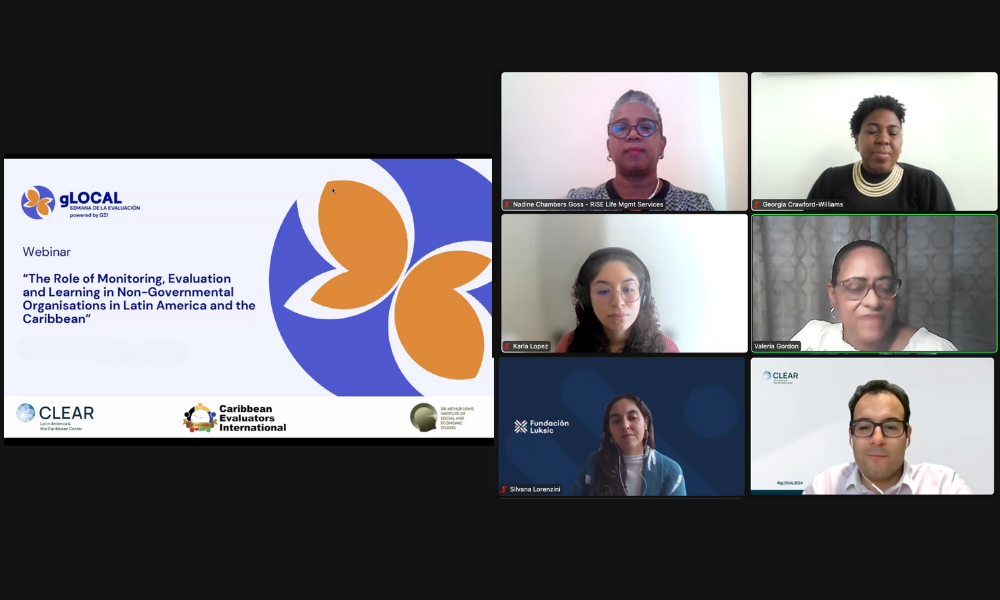gLOCAL Evaluation Week has established itself as one of the largest events on monitoring and evaluation worldwide. During the event, thousands of representatives from international organizations, governments, non-governmental organizations, academics, researchers, and students come together to connect, learn, and collaborate.
The goal of the event is to facilitate the exchange of knowledge and promote a global network of individuals and organizations that value the power of evidence to improve people’s lives. In its 2024 edition, held from June 3 to June 7, more than 370 online events, conferences, and panels were conducted.
The event is convened by the Global Evaluation Initiative (GEI), a network of organizations and experts aimed at supporting governments in strengthening their monitoring and evaluation systems to help collect and use evidence that improves the lives of their citizens and facilitates the implementation of efficient public policies. For Latin American countries, gLOCAL 2024 was implemented by CLEAR LAC.
Chilean Contributions to the Global Discussion
Through its Development and Evaluation area, Fundación Luksic participated in gLOCAL Evaluation Week 2024, presenting evidence and sharing experiences gathered during the implementation of social programs in Chile.
One of the sessions, “From Small Nudges to Great Opportunities,” was organized by Fundación Luksic in collaboration with CLEAR LAC. The session aimed to help participants understand how evaluations of specific interventions addressing specific issues can be useful in producing valid evidence for decision-making on the scalability and reproducibility of social programs.
In this session, Macarena Cea, Director of Evaluation and Development at Fundación Luksic, presented the example of the “Aspirations for the Future” program, which seeks to support high school graduates in continuing their higher education through the provision of information.
Additionally, Silvana Lorenzini, Evaluation Coordinator at Fundación Luksic, shared the evaluation model applied at the Foundation in the panel: “The role of monitoring, evaluation and learning in Non-Governmental Organizations in Latin America and the Caribbean.” In her presentation, she addressed the entire evaluation cycle applied to the Impulso Chileno program: from problem evaluation, program design or redesign, implementation of the evaluation, evaluation results, and impact assessment.

